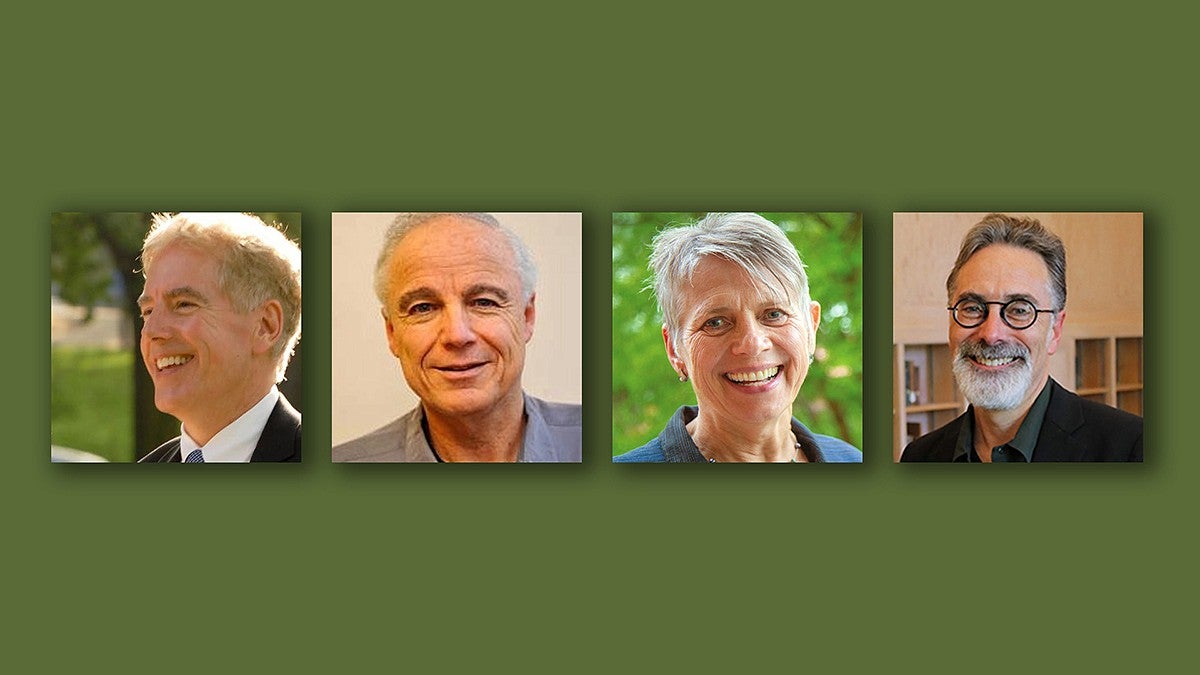The Oregon Humanities Center, the only one of the University of Oregon’s many academic centers dedicated solely to the humanities, is marking its 40th anniversary this year.
Established in 1983 through a grant from the National Endowment for the Humanities, the center has grown over the years into a leading UO research center. It also offers extensive opportunities for teaching and sponsors numerous public events.
Over the years the center has funded research endeavors by hundreds of UO faculty members and graduate students, developed two programs for undergraduate research, supported the creation of dozens of new humanities courses, hosted and co-sponsored hundreds of free public events, and produced more than 860 episodes of its interview program “UO Today.”
To celebrate its 40-year impact on the UO and the wider community, the center’s focus this year will be on the theme “Humanities Matter(s).” The center will host a series of talks, panels and events featuring UO humanities scholars, who will discuss their area of study and why the knowledge they produce matters.
To open its 40th anniversary celebration, the center will host a Directors’ Roundtable Discussion and Reception on Friday, Nov. 3, from 3 to 6 p.m. in the Knight Library Browsing Room.
The event will feature center directors past and present: John Stuhr, an Emory University philosophy professor who served as director from 1987 to 1994; Steven Shankman, a UO English professor and UNESCO chair in transcultural studies, interreligious dialogue and peace who served from 1994 to 2008; Barbara Altmann, president of Franklin & Marshall College, who served from 2008 to 2013; and Paul Peppis, a UO English professor and the center’s current director.
The panelists will reflect on the history of the humanities center, especially the key accomplishments of their terms as director, and share their thoughts about the future of the humanities at the UO, in higher education and beyond.
The center’s first director, English professor Donald S. Taylor, who died in 2011, served from 1983 to 1987.
“My sense of the value of the OHC has not changed since the day in 1987 when I first set foot on campus: The value is immense,” Stuhr said. “The OHC has helped stimulate and support cutting-edge research, innovative teaching that stays with its students and professors for a lifetime, and community engagement that extends creativity and curiosity across lives and places.”
In addition, Christopher Newfield, director of research at the Independent Social Research Foundation in London, will give a talk on March 7, 2024. He will share some of his insights into the current state of the academic humanities and how to keep them strong and vibrant despite declining academic and political respect for and investment in the humanistic disciplines. Newfield has led the development of critical university studies, a new interdisciplinary field that combines humanities and social science approaches.
But in spite of some of the headwinds faced by humanities programs, Peppis remains optimistic about their future.
“We read and hear nearly daily from journalists, pundits and politicians announcing the crisis, decline or even death of the humanities,” Peppis said. “But based on my experience as OHC director and the evidence of the ground-breaking research projects, innovative courses, illuminating events and stimulating lecturers that the OHC has supported over the past 40 years, I believe that the state of the humanities is strong.”
For more information about the Oregon Humanities Center and its events go to the center’s website. Registration is requested for the Nov. 3 event.
—By Peg Gearhart, Oregon Humanities Center
—Top photo: (From left) John J. Stuhr, Steven Shankman, Barbara K. Altmann and Paul Peppis


